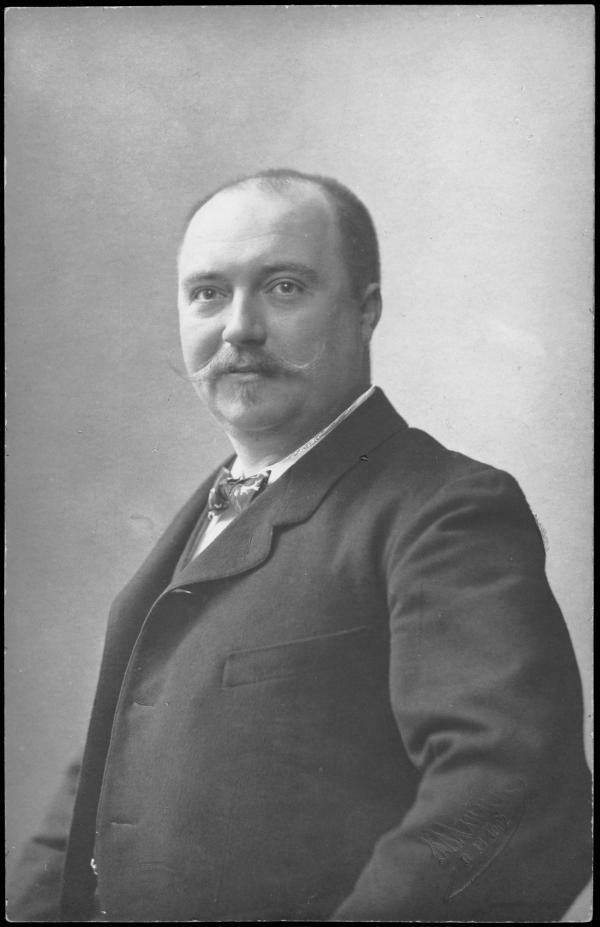Joseph Tijssen
Joseph (also Jos) Tijssen studied piano, violin and organ in his native Roermond (partly with his elder brother Henri, a composer and conductor), then piano and composition at the Brussels conservatory. He became répetiteur and second conductor at the Hollandsche Opera-Gezelschap in Amsterdam, and subsequently at that company's successor, De Nederlandsche Opera. His wife, the soprano Anna Tijssen-Bremerkamp, discovered his tenor voice, so he took singing lessons with Cornelie van Zanten. He made his debut stepping in on short notice as the Evangelist in Bach's Matthäuspassion in Leiden in 1890, then he made also his operatic debut at the opera company where he conducted, in a comprimario role in Guillaume Tell (11 October 1890).
Discography Grammophon, Hamburg, April 1904 1819L Die Walküre (Wagner): Winterstürme wichen dem Wonnemond 2-42846 1820L Die Meistersinger von Nürnberg (Wagner): Fanget an 2-42869 1834L Si tu veux, Mignonne (Massenet) 3-32175 1835L Vorbei (Koschat) 2-42858 1836L Das Zauberlied (Meyer-Helmund) 2-42859 1866L Faust (Gounod): O gib junges Blut (w. Lohfing) 44283 187m Martha (Flotow): Ja, seit früher Kindheit Tagen (w. Lohfing) 044041Reference 1: Dutch Divas; reference 2: Kutsch & Riemens Source for the discography: Gesellschaft für historische Tonträger, Wien Picture source |
